Organic wine has become increasingly popular in recent years as consumers become more conscious of the impact their choices have on the environment and their health. Unlike conventional wine, organic wine is produced without the use of synthetic pesticides or fertilizers, and the grapes are grown in a way that promotes biodiversity and soil health.
Reasons for organic wine
Many people choose organic wine because they believe it is better for the environment and for their health. Organic farming practices help to reduce the use of chemicals that can harm the soil, water, and wildlife. In addition, organic wine is free from the residual pesticides and herbicides that can be found in conventional wine.
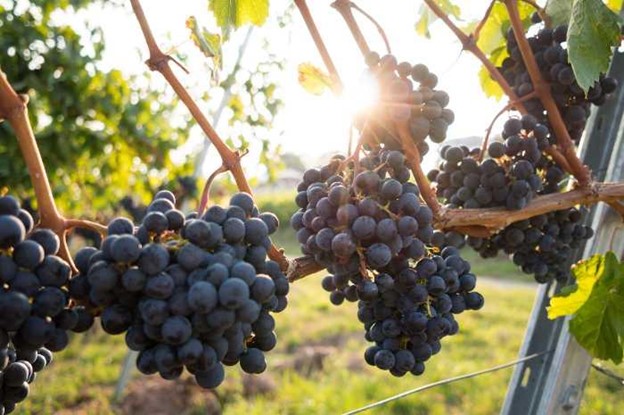
Some studies have also suggested that organic wine may contain higher levels of antioxidants and other beneficial compounds.
Is organic wine expensive?
While organic wine is often associated with a higher price point, there are many affordable options available. Some winemakers are also using sustainable practices that go beyond organic farming, such as using renewable energy sources and reducing water usage. Whether you are a wine enthusiast or simply looking to make more sustainable choices, organic wine is a great option to consider.
What is Organic Wine?
Organic wine is a type of wine made from grapes that are grown without the use of synthetic pesticides, herbicides, or fertilizers. Instead, organic vineyards rely on natural methods to control pests and diseases, promote soil health, and improve grape quality. Organic wine production also prohibits the use of genetically modified organisms (GMOs) and irradiation.

Organic wine production is regulated by various certification bodies around the world, such as the USDA in the United States, the EU in Europe, and the JAS in Japan. To be certified organic, wineries must meet strict standards and undergo regular inspections to ensure that they are following organic practices.
Sustainability of Organic Wine
People associate organic wine with sustainability and environmental responsibility. By avoiding the use of synthetic chemicals, organic vineyards can help preserve soil health, protect wildlife, and reduce their carbon footprint. Some wine lovers believe that organic wine is healthier and more natural than conventional wine. Although scientific evidence on this is limited.
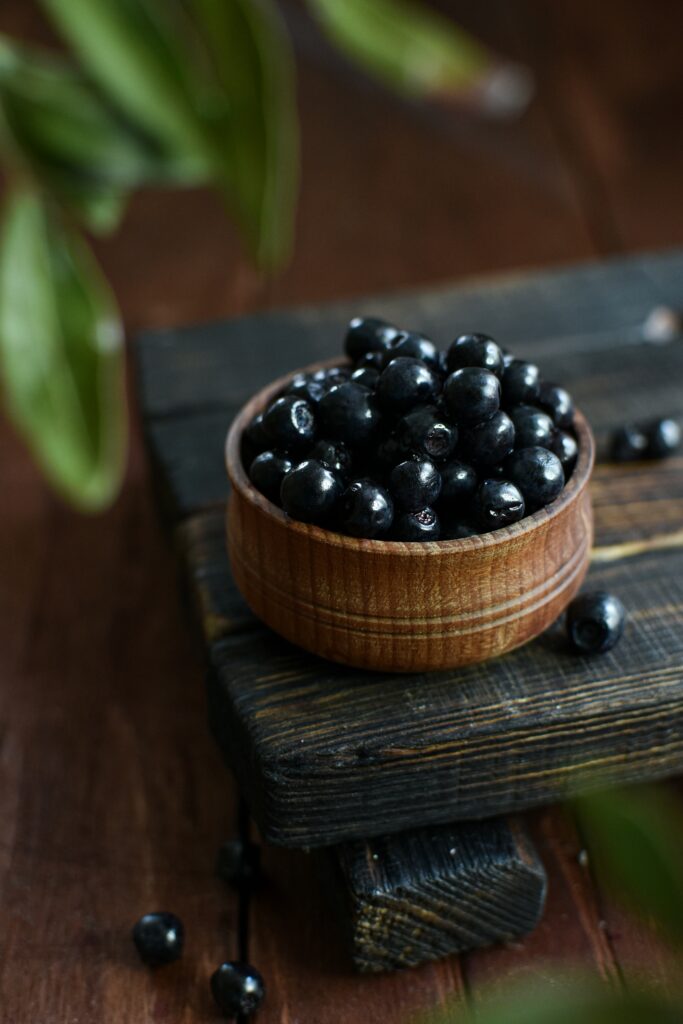
Production of Organic Wine
This production method is a way of winemaking that involves the use of organic farming practices to grow grapes without the use of synthetic chemicals. Organic farming practices include the use of natural fertilizers, including compost and animal manure, and the use of natural pest control methods, such as companion planting and the use of beneficial insects.
To control mildew and pests Bordeaux mixture, sulfur, clays, herbal teas, natural minerals and plant preparations are used.
Organic wine production methods
In addition to the use of organic farming practices, organic winemakers also avoid the use of chemical additives in the winemaking process. This includes avoiding the use of sulfites, which are commonly used as a preservative in conventional winemaking. Instead, organic winemakers use natural methods to preserve the wine, such as aging the wine in oak barrels.
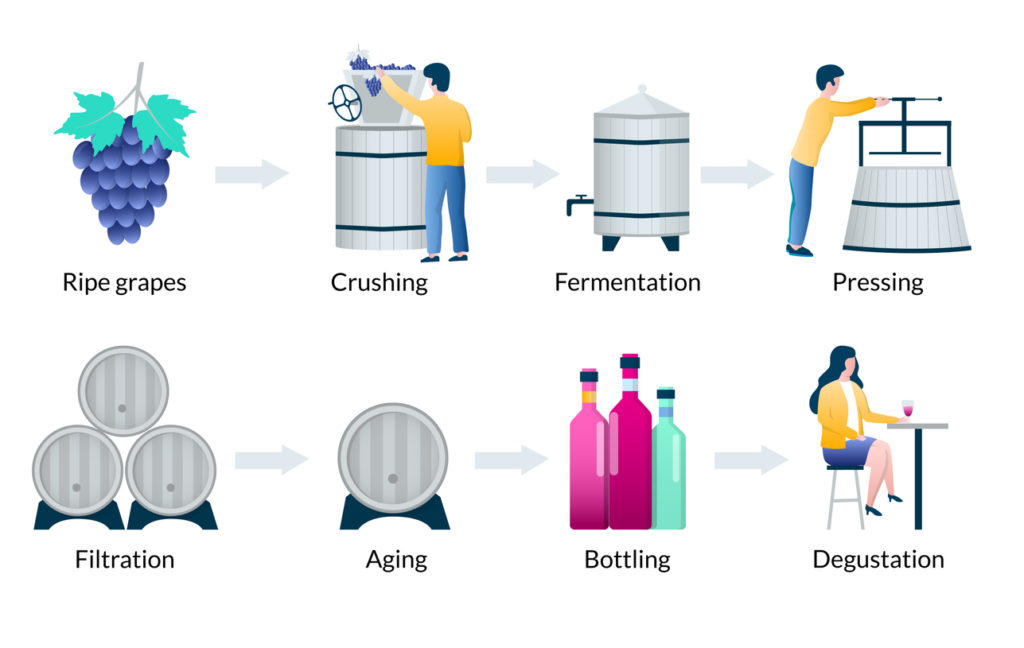
Organic wine production is regulated by various certification agencies around the world, which set standards for organic farming practices and winemaking methods. In the United States, the USDA National Organic Program regulates organic wine production. This requires the wine maker to produce organic wines from grapes without the use of synthetic chemicals and that the winemaking process does not involve the use of chemical additives.
Organic wine production has become increasingly popular in recent years, as consumers have become more interested in sustainable and environmentally friendly products. While organic wine production can be more labor-intensive and costly than conventional winemaking, many winemakers believe that the resulting wine is of higher quality and better reflects the terroir of the vineyard.

Benefits of Organic Wine
Organic wine is becoming increasingly popular due to the numerous health benefits it offers. Here are some of the benefits of drinking organic wine:
Pesticides
No Pesticides: Organic wine is made from grapes that are grown without the use of pesticides. This means that you don’t have to worry about consuming harmful chemicals when you drink organic wine.
Health
Healthier for You: Organic wine is healthier for you than conventional wine. It contains fewer sulfites, which can cause headaches and allergic reactions in some people.

Environment
Better for the Environment: Organic wine is better for the environment than conventional wine. The grapes are grown using sustainable farming practices, which help to protect the soil and the surrounding ecosystem.
Taste
Organic wine is also known to have a better taste than conventional wine. This is because the grapes are grown in a natural environment, without the use of chemicals that can alter the taste of the wine. If you’re looking for a healthier, more sustainable option for your next glass of wine, consider choosing organic wine.
Organic Wine vs. Conventional Wine
Organic wine is becoming increasingly popular among wine enthusiasts due to its natural and sustainable production methods. However, some consumers may wonder how organic wine differs from conventional wine. Here are a few key differences:
Organic farming practices: Organic winemakers use natural methods to grow grapes, such as composting, cover crops, and natural pest control. Wine makers use Bordeaux mixture, sulfur, clays, herbal teas, natural minerals and plant preparations to control pests and mildew. Conventional winemakers may use synthetic pesticides and fertilizers.
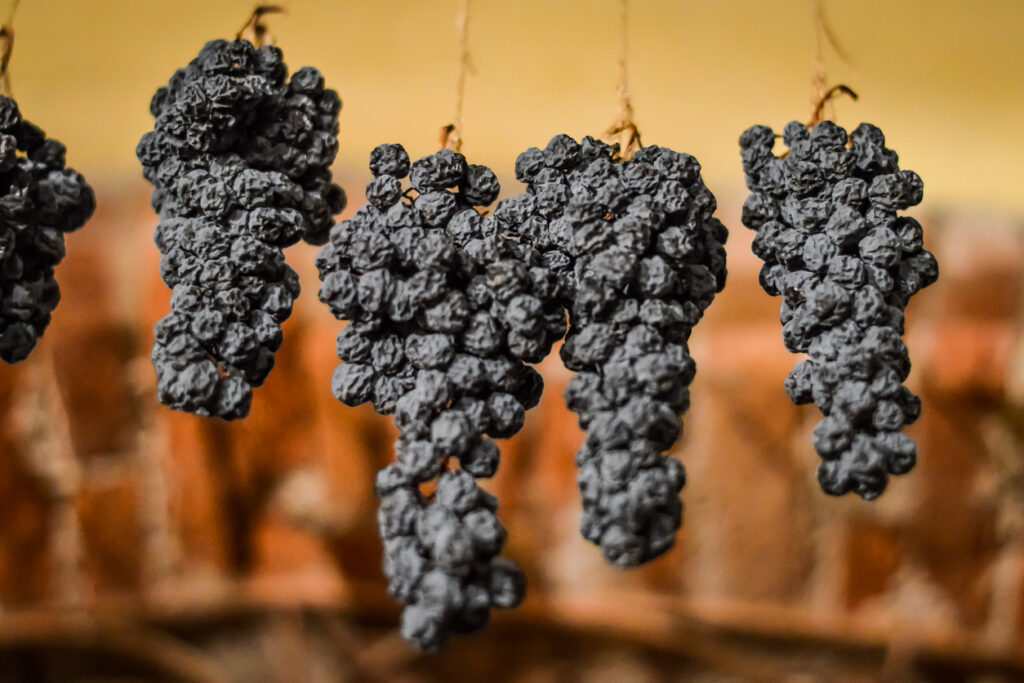
No added chemicals: Organic winemakers do not add sulfites or other chemicals to their wine. Conventional winemakers may use sulfites as a preservative and may add other chemicals to enhance flavor or color.
Certification: Organic winemakers must follow strict guidelines and be certified by a third-party organization to use the “organic” label. Conventional winemakers do not have the same certification requirements.
Despite these differences, both organic and conventional wine can be high-quality and enjoyable. Ultimately, the choice between the two comes down to personal preference and values. Some people prefer the natural and sustainable methods used in organic wine production, while others may not mind the use of synthetic chemicals in conventional wine.

It’s important to note that while organic wine may be better for the environment, it may not necessarily be better for your health. Both organic and conventional wine contain alcohol and you should consume it in moderation.
Popular Organic Wine Brands in California and Oregon
Organic wine is becoming increasingly popular among wine lovers who are looking for a healthier and more sustainable option. Here are some of the most popular organic wine brands:
Bonterra
This is a well-known organic wine brand that offers a variety of red, white, and sparkling wines. They use organic grapes and sustainable farming practices to produce their wines. The Bonterra winery is located in California and offers organically and biodynamically farmed wines.

Frey Vineyards
The Frey Vineyards are a family-owned winery that has been producing organic and biodynamic wines for over 30 years. They offer a wide range of wines, including reds, whites, and rosés. The vineyard is the first America`s first organic and biodynamic winery. The Frey winery is located in California.

Cooper Mountain Vineyards
The Cooper Mountain Vineyards is a certified organic and biodynamic winery located in Oregon. They specialize in Pinot Noir and Chardonnay, but also offer other varieties. The Cooper Vineyards are located in Willamette Valley close to Portland.

Carneros
Domaine Carneros is a California-based winery that specializes in sparkling wines. They use organic grapes and sustainable farming practices to produce their wines. Next to white and rose sparkling wines they offer Chardonnay and Pinot Noir wines.

These are just a few of the many organic wine brands available on the market. These wineries offer their wines via their own online shops and wine clubs.
If you’re interested in trying organic wine, be sure to read the label carefully to ensure that the wine is certified organic and made with sustainable farming practices.
How to Choose Organic Wine
Choosing organic wine can be a daunting task, especially if you’re not familiar with the terminology and labels. Here are a few tips to help you make an informed decision:
Certification
Look for the USDA Organic seal on the bottle. This indicates that the wine has been certified organic by the United States Department of Agriculture.
Label
Check the label for the words “made with organic grapes.” This means that at least 70% of the grapes used to make the wine are organic.
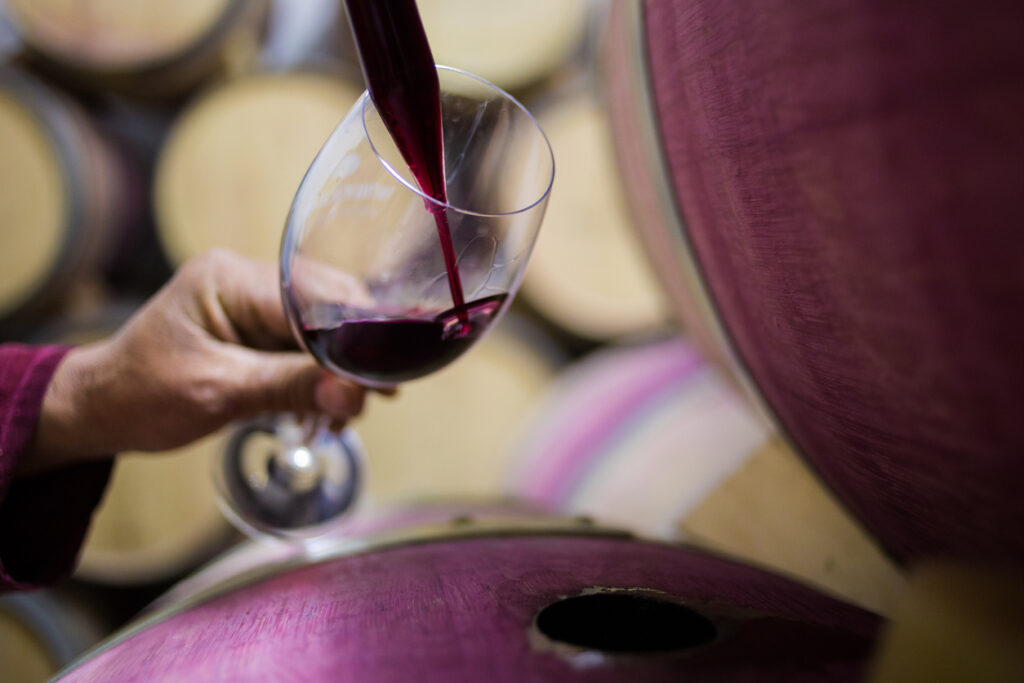
Winery
Research the winery. Look for information on their farming practices and certifications. Many wineries that practice organic farming will proudly display this information on their website or label.
Vintage
Consider the vintage. Organic wines are often made in smaller batches, so the vintage can give you an idea of the wine’s age and quality.

Organic vs. non-Organic wines
It’s important to note that just because a wine is labeled “organic” doesn’t necessarily mean it’s better than non-organic wines. Taste is subjective, and you should choose a wine that you enjoy regardless of its farming practices.
Additionally, organic wines may be more expensive than non-organic wines due to the higher cost of organic farming practices. Keep this in mind when making your purchase, and consider it an investment in both your health and the environment.
Conclusion
Organic wine is a growing trend in the wine industry, and for good reason. The use of organic farming practices and the avoidance of harmful chemicals and pesticides result in a healthier product for both the consumer and the environment.
While organic wine may not be as widely available as conventional wine, it is becoming more accessible as demand for it increases. Additionally, many organic wineries are small, family-owned businesses that prioritize sustainability and quality over mass production.
It is important to note that while organic wine may be better for the environment, it is not necessarily better in taste. However, many wine enthusiasts appreciate the unique flavors and characteristics that come from organic farming methods. They can be readily stored when you cool the wines properly.
Overall, organic wine is a great option for those who prioritize sustainability and health in their wine choices. With the growing availability and variety of organic wines, there has never been a better time to try them out for yourself.

